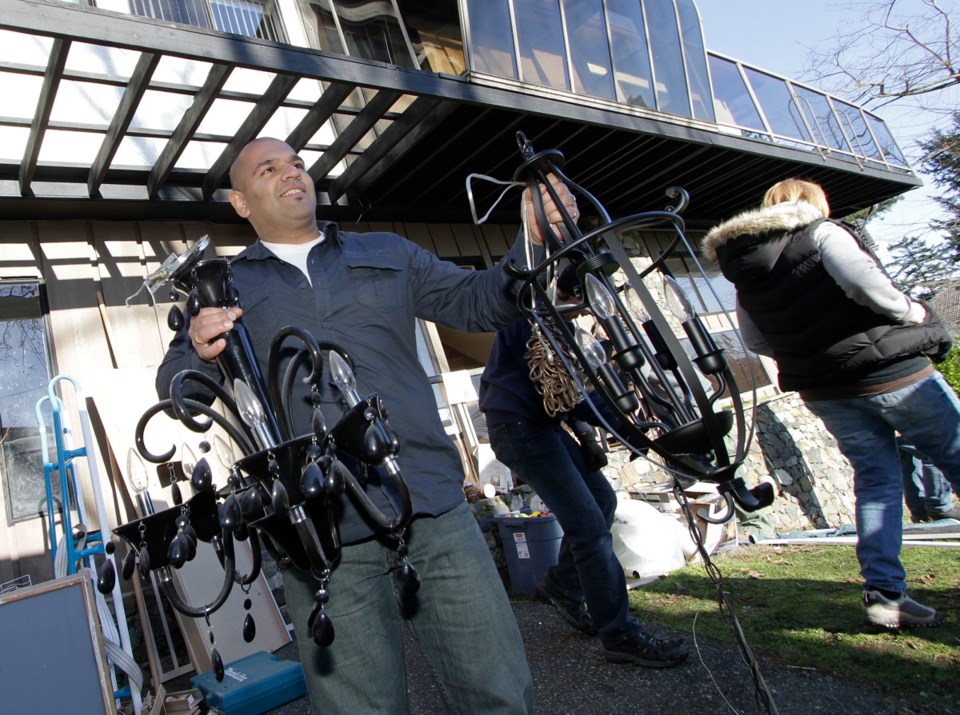Rishi Sharma could have just recycled the materials when he demolished his house, but that wasn’t his style. He wanted to go further.
“My dad came from India with 20 bucks in his pocket,” Sharma said. “We had 10 people staying at my house at one time because he got his brother, his sister, his mom and his dad in there. We reused everything.”
So from kitchen appliances and light fixtures to baseboards and carpets, the two-storey home will slowly be taken apart, sold and reused. Some of the materials may still be recycled, as in traditional demolitions — wood chipped and sent to mills, foundations ground for aggregate — but the goal is to send nothing to the landfill.
On Saturday, Habitat for Humanity volunteers were pulling nails and hauling out whatever they could sell at their Langford ReStore, which supports the group’s building projects. Kitchen appliances, baseboards, shelves and doors were piled into a moving van.
“His kitchen, it will barely hit the floor and someone will buy it and it will go off and carry on in its original function,” said Yolanda Meijer, executive director of Habitat for Humanity Victoria.
But Sharma didn’t stop there.
Members of OUR Ecovillage, a non-profit group in Shawnigan Lake that promotes sustainable living, is interested in the home’s wood ceilings, electrical wiring, plumbing and carpets, which it will use on growing green roofs.
Supporters of deconstruction have long boasted that it helps people by providing things like appliances at reduced cost. Others take pride in sending less material to the landfill.
But the cost has always been a deterrent. Traditional home demolitions can take about a week and run owners about $10,000 to $20,000, with most of the material going to the landfill.
Deconstruction can take three times as long, with costs climbing to about $35,000. But that can be reduced when groups like Habitat for Humanity and OUR Ecovillage get involved, said Brandy Gallagher, executive director of OUR Ecovillage. By having volunteers remove materials, costs drop, and homeowners can get tax deductions for their donations.
OUR Ecovillage is documenting the work on Sharma’s house, gathering evidence to support proposed policy changes mandating homeowners reuse as much material from destroyed homes as possible. With the right policies, members say, deconstructing homes can be as economically efficient as traditional demolition.
“Ultimately, we’d like to see something created so that every decommissioned building has to go through an assessment to see what can be saved,” Gallagher said.



